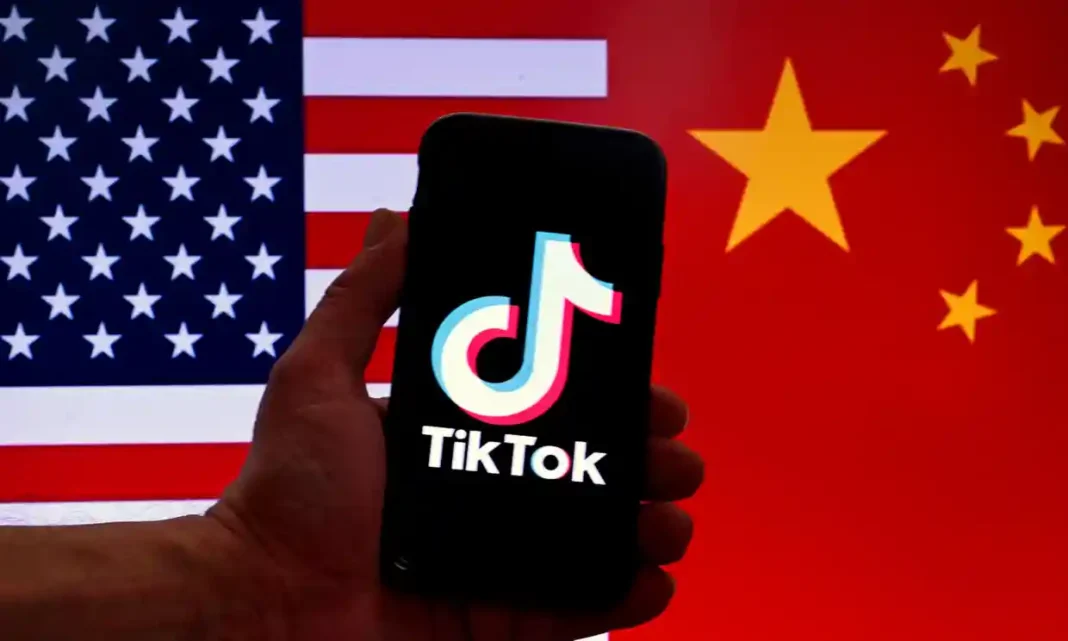Translated Chinese military reports suggest that warfare is shifting from destroying bodies to paralyzing and controlling the opponent’s mind. Making the Biden administration’s call for TikTok’s Chinese owners to sell their stakes in the app or face a US ban just the start of a protracted Whac-A-Mole game in a broader strategy to combat cognitive warfare – with the human mind as the battlefield.
While a TikTok ban may take out the first and fattest mole, it fails to contend with the wider shift to cognitive warfare as the sixth domain of military operations under way, which includes China’s influence campaigns on TikTok, a mass collection of personal and biometric data from American citizens and their race to develop weapons that could one day directly assault or disable human minds. We ignore this broader context at our peril.
In November 2020, François du Cluzel, a project manager at Nato Act Innovation Hub, issued a report entitled Cognitive Warfare, identifying the human domain with nations racing to weaponize neuroscience. The US government has blacklisted Chinese institutes and firms it believes to be working on dangerous “biotechnology processes to support Chinese military end uses”, including “purported brain-control weaponry”. The Chinese People’s Liberation army (PLA) is investing heavily in cognitive domain operations, including AI research in brain-inspired software, hardware and decision making.
Nathan Beauchamp-Mustafaga, a China specialist at the Rand Corporation, calls this nothing less than an “evolution in warfare, moving from the natural and material domains – land, maritime, air, and electromagnetic – into the realm of the human mind”. The PLA, he says, hopes to “shape or even control the enemy’s cognitive thinking and decision-making” abilities. From disinformation campaigns to modern weapons targeting the brain, “brain warfare” is rapidly becoming a reality.
Platforms like TikTok exemplify cognitive influence by shaping the beliefs and preferences of its vast user base while collecting data and developing psychogenic profiles of its users. TikTok’s algorithm has the power to mold public opinion and exploit user data to shape preferences, biases and beliefs. I’ve seen this first-hand. After a talk I gave at the World Economic Forum in Davos, TikTok influencers took a portion of the talk out of context and amplified it on the platform. The videos received millions of views. My own attempt on the platform to combat the misinformation received a tiny fraction of views, as did attempts by the very same influencers whose videos went viral. It appears easier to defame someone shedding light on authoritarian practices than to amplify their message about the already chilling misuse of neurotechnology by the regime.
Foreign biometric data collection on Americans is increasing, with users unwittingly providing facial recognition data through TikTok’s filters and games. But the current focus on TikTok shouldn’t blind us to the collection of sensitive biometric data by China through other technology it has deployed in the United States. One example is the Flowtime device, a neurotechnology headset used by many Americans for meditation, gaming and other purposes, produced by Hangzhou Enter Electronic Technology Co, Ltd (“Entertech”), a Chinese-based company. Entertech has also sold tens of thousands of helmets fitted with EEG sensors to the State Grid Corporation of China – a Chinese state-owned electric utility corporation – so it can measure its workers’ fatigue and other brainwave activities in real time on the job. Entertech has accumulated millions of raw EEG data recordings from individuals across the world, along with personal information and device and app usage by those individuals.
The most alarming aspect of cognitive warfare is the development of brain control weaponry. Chinese National Natural Science Foundation-funded scientists have urged China to invest in military brain science (MBS), researching the damaging effects of various weapons on brain tissues and the development of brainwave interference and infrasound weapons. The brain, they argue, is the “‘headquarters’ of the human body” and weapons “[p]recisely attacking the ‘headquarters’” will soon become “one of the most effective strategies for determining victory or defeat in the battlefield”. While the US intelligence community has recently discounted the possibility that Havana Syndrome was caused by a foreign adversary, the US military has been testing pulsed energy on animals to attempt to replicate Havana Syndrome effects.
Addressing cognitive warfare requires a multifaceted approach that goes beyond banning apps like TikTok. We need to move quickly to secure global rights and norms to individuals that secure their right to cognitive liberty, and ensure individuals are entitled the right to mental privacy, freedom of thought, and self-determination over our brains and mental experiences.
We also need to raise public awareness of the risks associated with digital platforms and neurotechnology devices by giving the public concrete information about the risks to themselves and national security. Educating users about potential dangers and promoting digital literacy will empower individuals to make informed decisions about their online presence and the devices they use.
The fight for our minds demands a comprehensive, long-term strategy that combines rights, policy, technology, education and international cooperation. Encouraging open dialogue and transparency among governments, the private sector and citizens will foster trust and facilitate collective understanding of the battle for our brains. By acting now, we can build a robust defense against ever-evolving threats to our cognitive liberty and the integrity of our nation, securing the foundations of the right to think freely for future generations.

